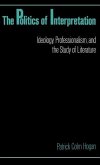Writers addressed include Corneille, Dryden, Moliere, Shaftesbury, Hutcheson, Hume, Rousseau, Kant, Schiller, Hegel, Schopenhauer; and, throughout, the legacy of these thinkers is found in the most recent contemporary theory, in work by Agamben, Badiou, Lyotard, MacIntyre, and others. A closing chapter considers the formation of the university across modern Europe, in Vico's Naples, Humboldt's Berlin, Newman's Dublin, Blair's Edinburgh, the France of Alain and Benda, the England of Leavis, as well as our contemporary institutional predicaments.
This book argues that from the late seventeenth century to the present national cultures have sought to regulate the democratic subject through the academic form of arguments about the proper relations of aesthetics to ethics and politics. It offers a radical reconsideration of the history of modernity, tracing the emergence of criticism as a socio-cultural practice across all the major European nations, and drawing on an extensive range of European literature and philosophy.
This book argues that from the late seventeenth century to the present national cultures have sought to regulate the democratic subject through the academic form of arguments about the proper relations of aesthetics to ethics and politics. It offers a radical reconsideration of the history of modernity, tracing the emergence of criticism as a socio-cultural practice across all the major European nations, and drawing on an extensive range of European literature and philosophy.








